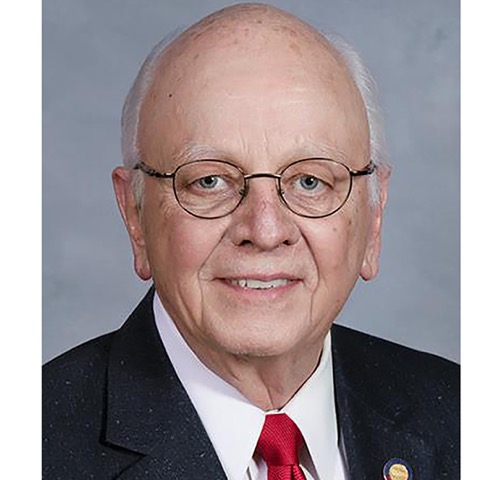State Rep. John Faircloth who represents portions of High Point and Greensboro in the state legislature has introduced a bill to revise the law on the release of police body warn camera videos.
Under the current law a superior court judge has to approve the review of a police body worn camera video by a City Council, county board of commissioners or city or county manager or anyone else other than law enforcement, the district attorney and the attorneys of a person who has been charged with a crime where the video will be used as evidence.
House Bill 791 sponsored by Faircloth, who is the former High Point police chief, would allow city councils, county boards of commissioners and city and county managers, and duly authorized citizen review boards to view body worn camera videos after signing a confidentiality agreement. So the bill eliminates the need to get approval from a superior court judge, but adds a confidentiality agreement.
The Greensboro City Council has already had experience with a confidentiality requirement and is in court over a ruling by Superior Court Judge Susan Bray that the City Council could view the police body worn camera videos in the Zared Jones case, only after signing confidentiality agreements. The city has appealed that decision to the North Carolina Court of Appeals and the case is pending. But the City Council has not viewed the video because of the confidentiality agreement stipulation.
Mayor Nancy Vaughan said, “I’ve had a few conversations with Rep. Faircloth and I understand that he was trying to put a bill together that would likely pass, but it’s not necessarily the bill that we wanted. There will be an opportunity for hearings on the bill and I would like to testify.”
Vaughan noted that if the City Council had to sign a confidentiality agreement then there is nobody to speak for the police. The complainant and their attorney would be able to talk about the video, but the members of the City Council would be unable to explain what they saw.
Vaughan said, “We have first hand experience when one side of the story is out in the public domain and it is often inaccurate.”
The City Council was allowed to watch the police body worn camera videos of the arrest of Jose Charles in Center City Park on July 4, 2016, but, largely because Charles was a minor at the time of the arrest, the video was never released to the public and the City Council had to remain silent about the video.
Vaughan says that she sees the Faircloth bill as an improvement over the current situation, but not as much of an improvement as she would like. She said part of the problem was the urban-rural split in North Carolina. Vaughan said that the larger cities in the state would like more freedom to release the body worn camera videos in a timely manner, but the law enforcement agencies in more rural areas were generally opposed.

